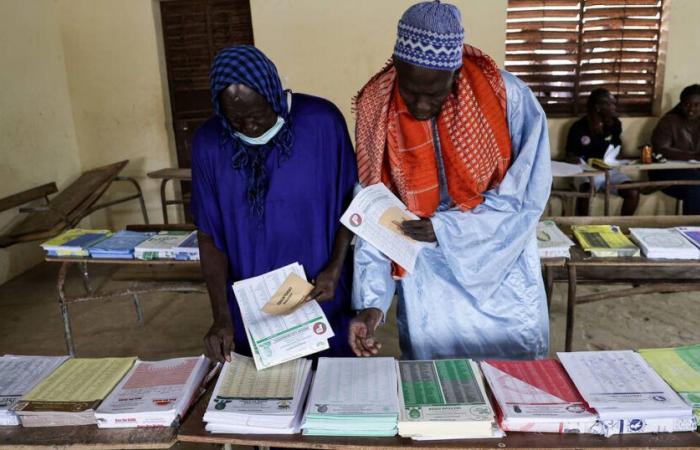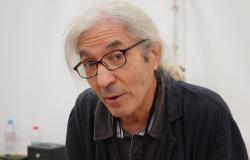
The African Patriots of Senegal for Work, Ethics and Fraternity (Pastef) came first in a large majority of voting centers during the legislative elections on Sunday, November 17 and should obtain a “qualified majority”, according to the spokesperson. word of the government.
The ruling party in Senegal won on Sunday November 17 “a big victory” to the early legislative elections, according to the government spokesperson. “I pay tribute to the Senegalese people for the great victory they gave to Pastef,” the party of the president and the Prime Minister, declared Amadou Moustapha Ndieck Sarré on the TFM channel, specifying that he was in possession of “90 to 95% of results”. «The strong trends show that Pastef will have a qualified majority”he said without specifying how many seats Pastef would have. Two of the main opposition leaders, the mayor of Dakar Barthélémy Dias and the runner-up in the 2024 presidential election, Amadou Ba, as well as other opponents of Pastef congratulated the ruling party.
The African Patriots of Senegal for work, ethics and fraternity (Pastef) came out on top in a large majority of voting centers for which the media announced the provisional results as they were posted. The head of government Ousmane Sonko notably wins in his office in Ziguinchor, in the south of the country. No significant incidents have been reported. The Takku Wallu Senegal coalition of former President Macky Sall, however, denounced in a press release a “massive fraud organized by Pastef”. Various actors reported a lower participation than that of the presidential election in March (61.3%). In the 2022 legislative elections, 46.6% of those registered voted.
Faye and Sonko hands free
This victory should allow the leaders to implement the agenda of rupture and social justice with which they were brought to power eight months ago. Bassirou Diomaye Faye was elected president in the first round in March, devoid of any executive experience but pulled to the top by the enthusiasm and aspiration for change of a young population tested by three years of political confrontation and economic crisis . His fiery mentor Ousmane Sonko, who should have been in his place if his candidacy had not been invalidated, became Prime Minister.
For months, these lawyers of a “left-wing Pan-Africanism” led a conflictual coexistence with an Assembly still dominated by the former presidential majority. Bassirou Diomaye Faye dissolved it as soon as constitutional deadlines permitted, in September. Around 7.3 million voters were therefore called on Sunday to elect 165 deputies who will sit for five years.
Voters had to decide whether or not to give the Faye-Sonko duo the means to keep their promises: to improve the lives of a population, a large part of which struggles on a daily basis to make ends meet, to share with them the income from natural resources such as hydrocarbons and fishing which would have been sold off abroad, fight corruption, transform the State and its justice… The cost of living remains a major concern, like unemployment, at more than 20%. The new leaders are in turn confronted with the wave of these hundreds of compatriots who leave each month in canoes to seek a better future in Europe.
Historically, the Senegalese have aligned their choice of presidential and legislative elections and Ousmane Sonko's Pastef was given the favorite by experts. Opposite, the opposition was dispersed. She campaigned by taking up the grievance formulated by a certain number of Senegalese according to which, for eight months, Ousmane Sonko spoke a lot and acted little. The person concerned defends himself by arguing the state in which he and Bassirou Diomaye Faye found the country and the multiple resistance to the undertaking of changing practices and the system.





